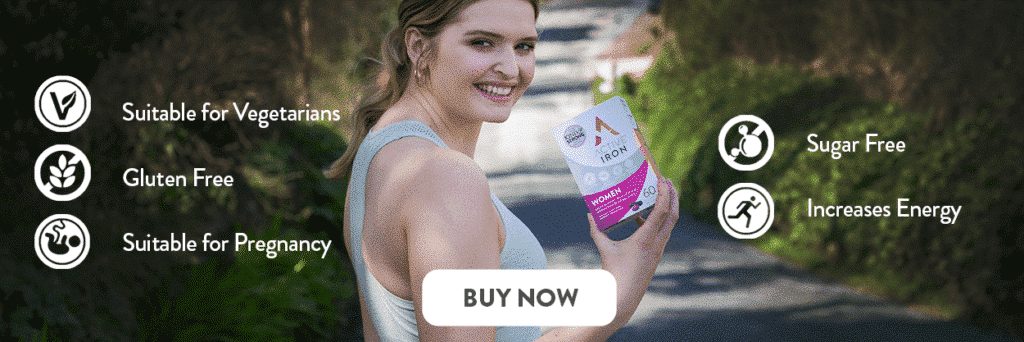UNDERSTANDING POSTPARTUM PERIODS.

Those first few weeks after your baby is born are a very special and exciting time. Your body goes through many changes, both emotionally and physically. Getting back to your pre-pregnancy normal can take time, not least your periods. Many women find that their periods change after having a baby (1). For some, periods are heavier or more painful, while others find their periods are lighter and more manageable.
This guide covers everything you need to know about postpartum periods, including:
- When your period will return
- Lochia and post-birth bleeding
- What you can expect from postpartum periods
- First postpartum period symptoms and when to speak to a doctor
- How breastfeeding affects postpartum periods
- What you need to know about contraception and postpartum periods
First postpartum period: when will my period return?
It takes time for your menstrual cycle to return to what’s normal for you.
Women who are not breastfeeding tend to get their first postpartum period sooner. This is because the hormone prolactin (2) that produces breast milk also suppresses menstruation. You can expect your first period about six to eight weeks after birth if you are not breastfeeding.
It takes much longer for your periods to return for those breastfeeding exclusively. Their first postpartum period doesn’t arrive for some women until they stop nursing. And the time frame varies for those mothers who use a combination of breast and bottle feeding. For most new mums, periods return one to two months after stopping or significantly reducing breastfeeding.
What is lochia?
Your first postpartum period is not confused with the bleeding straight after delivery. Lochia is when your body gets rid of the blood and tissue that builds up in the uterus during pregnancy. All women experience post-birth bleeding, regardless of whether they had a vaginal or cesarean delivery.
In the first few days after giving birth, lochia can be heavy, dark red, and may include clots. The discharge gradually becomes lighter and turns a pink or brown color before becoming watery and clear. Lochia can continue for around six weeks postpartum. It is recommended that you don’t use tampons during lochia. Instead, most doctors and midwives recommend using pads while the vagina is still healing. Ask your health professional when you can start using tampons again at your six-week postpartum check-up.
Postpartum periods: what to expect
Every woman’s period is different. And you may find your periods change after you have had a baby. Menstruation can take a while to settle down and return to standard for you before pregnancy.
After pregnancy, your first period is often heavier, and you may experience extra cramping. A heavy period is normal due to the increased tissue in the uterine lining that needs to leave your body.
For some women, postpartum periods become irregular and fluctuate in length. You may experience a heavy period of one month, followed by a lighter one. Many new mums find the blood color is different or that the flow is heavier and includes more clots. Other mothers experience cramping that’s more intense than before. For some women, periods get easier because the uterus has become stretched and relaxed during pregnancy.
Usually, there is no need to worry if your periods look or feel different in those first few months after the baby is born. However, there are some postpartum period symptoms that you do need to watch.
Symptoms of postpartum periods and when to speak to your doctor
The following symptoms (3) may be early warning signs of a problem. If you experience any of the following during your postpartum periods, have a chat with your midwife or doctor:
- Heavy bleeding. While heavier periods are standard, visit your healthcare professional if the flow is so heavy you are regularly soaking through pads or need to change pads every hour. Heavy menstrual bleeding can often lead to significant iron loss. In this case, an iron supplement could help support iron levels. Iron supplements can often cause side effects such as constipation and nausea, so it’s essential to choose one that is Kind & Strong.
- Bleeding that occurs with severe pain or a fever. Visiting a doctor is essential when your experience severe pain or sudden fever (over 100.4 degrees Fahrenheit) during your period.
- Intense cramping. As your uterus contracts and returns to size, cramping is normal. If the cramping is more severe than usual, it’s important to visit your healthcare professional.
- Blood clots. Passing clots is also common. Be sure to consult your healthcare professional if the clots are larger than a golf ball.
- Foul-smelling discharge. Check-in with your doctor if your period blood has an unpleasant smell.
These symptoms could be signs of an infection that requires treatment. So, listen to your body, and if something feels unusual for you, check it out with a health professional.
Breastfeeding and postpartum periods
As we have seen, breastfeeding can delay the return of your periods because the hormones that produce breast milk also delay ovulation. However, some mums find their periods return pretty quickly, even when breastfeeding.
Your menstrual cycle can affect your breast milk in other ways too. You may notice a decrease in milk supply around the time of your period. Hormonal changes can also affect how your breast milk tastes. Your baby may become fussier during feeding when you are menstruating and doesn’t nurse for as long. These changes are common to many new mums. If you have concerns about your baby’s feeding during your period, it’s best to consult your midwife.
Contraception and postpartum periods
You can get pregnant again within just a few weeks of giving birth. Women usually release an egg about two weeks before their period starts, meaning you can even get pregnant before your first postpartum period. Pregnancy is also possible if you are breastfeeding and your periods haven’t returned.
So, it’s never too early to start thinking about contraception(4). Your six-week postpartum health check-up is an excellent opportunity to ask about contraception. Some forms of contraception are acceptable to use straight after birth. Condoms, diaphragms, and IUDs are all safe options even when breastfeeding.
Postpartum periods: quick summary
Your first post-baby period is a sign that your body is recovering after childbirth. However, it takes time for your body to adjust. How soon your postpartum periods return varies from woman to woman, and you may notice your periods are different from what you experienced before. Here’s a summary of what you can expect:
- Lochia is the bleeding you experience immediately after birth and is not your first period.
- For most women, periods return about 6-8 weeks after birth.
- It may take longer for your periods to return if you are breastfeeding.
- Postpartum periods are often heavier than those you experienced pre-pregnancy.
- Your first few periods may be irregular, and settling down into a regular cycle takes time.
- If you have heavy bleeding, large clots, or severe pain, talk to your health professional.
- It’s possible to get pregnant within three weeks of giving birth, so plan your post-baby contraception early.
Links:
- When will my period start again, NHS
- Prolactinoma, Puluitary
- Period problems, Office on Women’s Health
- When can I use contraception after having a baby, NHS


